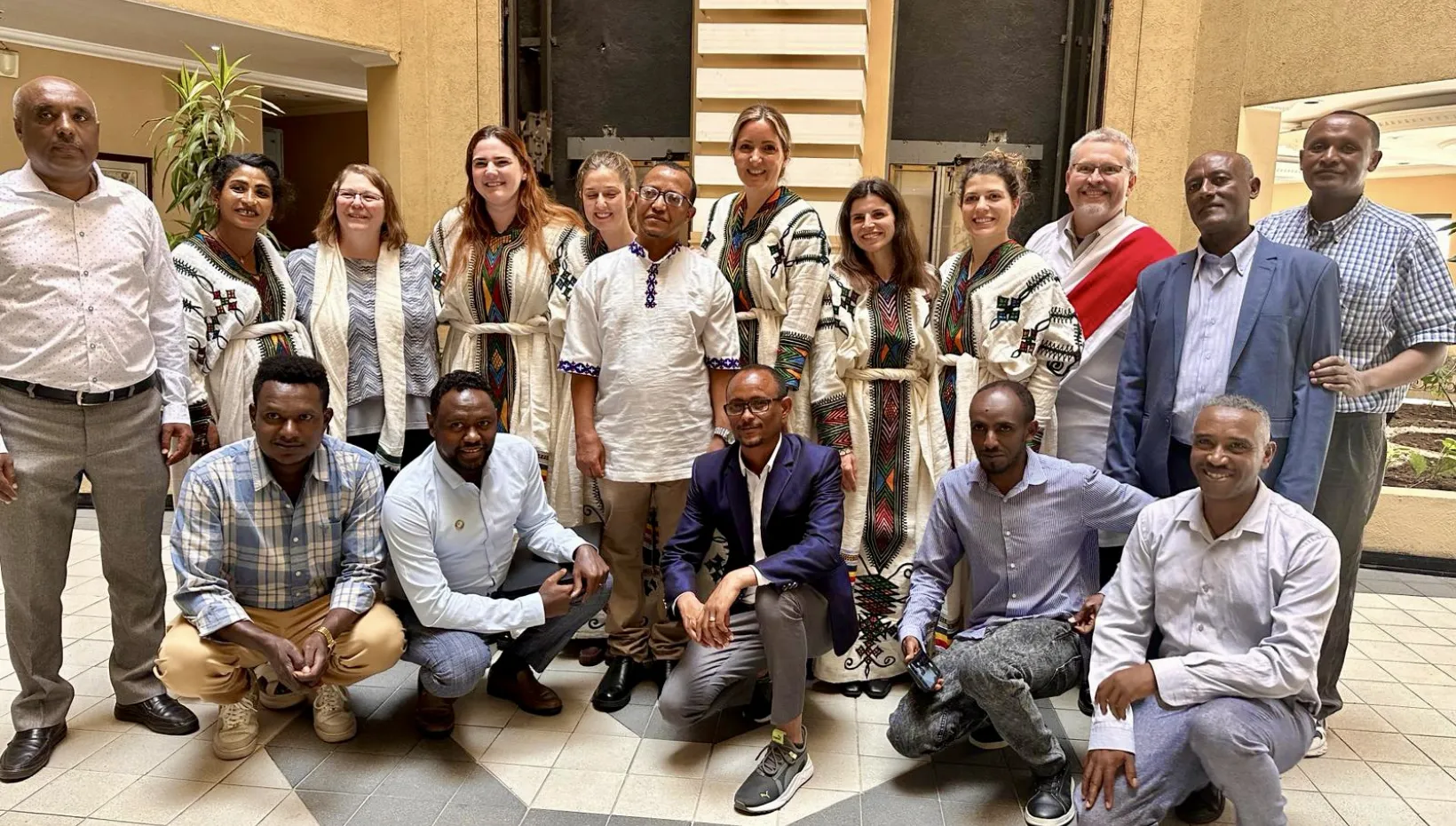Veterinary training in Ethiopia works to address national food systems, health

Article by: College of International Affairs
Originally Published
What will African agriculture look like in 2050? A growing population means more need for food and pastoral livestock, but pressures on agricultural systems like land scarcity, limited technologies, more severe drought and ever-increasing animal disease prevalence are having an impact. Luckily, the veterinary sector in Ethiopia is working in coordination with The Ohio State University College of Veterinary Medicine, Global One Health initiative, government and universities to address these concerns and reduce incidence of zoonotic disease that could impact livelihoods of African families.
The World Organisation for Animal Health (WOAH) released a set of competency guidelines for veterinary training that embraces a One Health approach—the understanding that disease management and global health needs to coordinate efforts between human and animal medicine simultaneously. Ethiopian veterinary education establishments, Ethiopian Ministries of Agriculture and Education, the Ethiopian Veterinary Association and Ohio State have been working to turn these guidelines into a standardized national curriculum that will be followed by all Ethiopian universities, helping practitioners prepare for the demands of a growing population.
Ohio State has played a key role in this important work and recently facilitated the “Focusing Forward on Veterinary Education,” a national action planning workshop for the Ethiopian veterinary community to talk about ongoing gaps and next steps for the country’s capacity building and training. This work extends the WOAH Veterinary Education Twinning Programme initiated in 2015 and the Day 1 Platform for Veterinary Education funded by the Bill & Melinda Gates Foundation, which began in 2019.
Ohio State University College of Veterinary Medicine faculty Amanda Berrian, DVM, MPH, PhD, DACVPM, and Armando Hoet, DVM, PhD, DACVPM, provided support, and Dr. Berrian’s advisees helped to execute the planning workshop. Andrea L. Bessler, DVM, and Alice Matos, DVM, MSc, both Ohio State veterinary public health residents, along with Manon Brown, a master’s student in public health, traveled to Ethiopia in March to facilitate training and build partnerships across industry and education.
“The highlight of my experience was being able to collaborate with other representatives of the Ethiopian veterinary schools, ministry representatives and stakeholders involved in the support of the country's veterinary services, as well as spend more time in person with our University of Gondar partners,” said Bessler.
“It was so impactful to see everyone's motivation, commitment and eagerness to improve and strengthen veterinary medical education in Ethiopia. As an early career professional, it was also powerful to see the successful implementation of a methodology to generate a national action plan that was country-driven, collaborative and transparent,” she said.
Like Bessler, Matos felt that the experience was beneficial as an early-career professional and is excited to apply the One Health philosophy in her future career. “I am especially interested in global public health,” she said. “Therefore, after graduating from the University of Lisbon in 2022, I decided to pursue the veterinary public health residency where I am having the opportunity to learn and collaborate in impactful international projects related to veterinary education and local capacity building.”
The students are working to “address health challenges at the human-animal-environmental interface,” explained Bessler. “Overall, my goal is to contribute to disease investigation and interdisciplinary interventions that prioritize the well-being of both humans and animals.